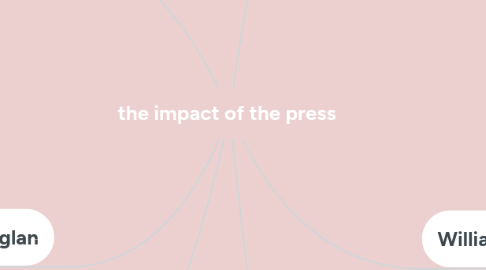the impact of the press
by Alice Loader


1. Roger fenton
1.1. who was he?
1.1.1. was the first war photographer
1.2. the gov thought that his photographs might counteract the antiwar reporting of Russell and the times
1.3. due to bad technology he could not take action shots
1.3.1. therefore most of his images were posed photos of men . Or officers and landscapes
1.4. his photographs were displayed in London and published in book form
2. press attacks on raglan
2.1. the times criticised raglan for incompetence
2.2. raglan thought attacks on him were unworthy and thought the newspapers may give the Russians useful information .
2.3. he didn't try and stop the attacks
2.4. the government didn't want to impose censorship fearing if they did it would be trying to hide its responsibility for the situation in the Crimea
3. palmerston
3.1. he was the replaced prime minister
3.2. he has a lot of support from the public
3.3. he made modest changes to the war effort
4. newspaper coverage
4.1. was aided by the telegraph which mean that the public could read about it
4.2. newspaper costs were falling due to new technology
4.3. however newspapers still remained expensive
4.4. many people were still unable to read
5. William Howard Russell
5.1. who was he ?
5.1.1. was the most influential war reporter of the times
5.1.1.1. he gained the trust of junior officers and ordinary troops
5.2. he presented the battle of alma
5.3. had extensive reports on the siege of Sevastopol
5.4. his reports highlighted ....?
5.4.1. the dreadful conditions of soldiers
5.4.2. ineffective treatment of the wounded
5.4.3. mismanagement of supplies
5.5. he praised ?
5.5.1. the bravery of soldiers
5.5.2. avoided criticism of raglan
5.6. he reported by asking questions and seeing problems
5.7. what was the overall effect of his reports ?
5.7.1. his reports criticised the government for the bad state and was a big factor in bringing down the British prime minister Aberdeen in 1855
6. Administrative and military reform
6.1. criticisms of military grew
6.1.1. was demands for military and government reform .
6.2. there was criticisms of the army leadership which caused assertiveness in the middle-class
6.3. after 1856
6.3.1. government introduced reform which led to merit based promotion in the civil service and British army

